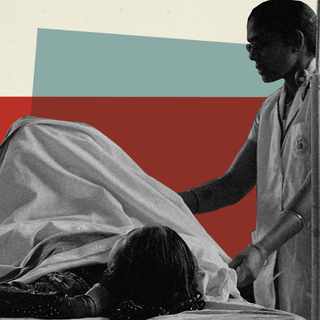Medical professionals believe including storytelling practices in public health messaging can make them more effective, especially in helping people get a more holistic picture of what they’re dealing with so they can also heed warnings better.
In an article published in The Lancet, Lise Saffran, an associate teaching professor at the University of Missouri School of Health Professions in the U.S., argued that storytelling can be a valuable tactic to help public health professionals get their messages across to their intended audiences. It can also motivate them to follow cautionary advice.
“It is my view that we who work in public health have an obligation to get better at telling public stories: stories that are crafted for broad audiences and accessible outlets,” Saffran wrote, adding that “greater attention to [the] narrative within public health can promote self-reflection on ethical questions.”
She strongly recommends the usage of metaphors as tools to “shape perceptions of policy issues.” In addition, it can also help convey the gravity of any situation. For instance, “instead of simply stating that case numbers remained fairly steady one week and sharply rose the next week, an effective metaphor could be describing a sink that has water dripping slowly from a faucet one week and quickly overflooding the next week,” Medical Express explained.
Related on The Swaddle:
Describing the Pandemic As a ‘War’ Is Ineffective and Dangerous
However, Saffran is hardly the first health public professional to highlight the benefits of storytelling in public health messaging — experts have been promoting the idea long before the pandemic even struck. However, the pandemic has, perhaps, highlighted its importance.
Experts also advocate for greater empathy towards people — besides using more creativity to accommodate their needs, rather than simply expecting people to follow a set of directives. Yet another example is to avoid labeling college students as “reckless” and “unsympathetic” for socializing amid a pandemic. Instead, public health officials could try to understand the reason behind the actions, which, in this case, is that socialization plays a vital role in the development of young students and helps improve their mental health after a long period of isolation.
Reportedly, instead of blaming students and trying to limit their social interactions, Northeastern University in the U.S. installed dozens of outdoor fire pits and propane heaters to ensure the students mingle outside in the winder, rather than indoors, where the potential of transmission of the virus is much higher.
A more informal, non-jargon-y approach can, perhaps, also bridge the communication gap between statements by experts and their interpretation by the masses. Commenting on the myth about Covid19 vaccines causing infertility in the male and female population. senior journalist Sangeeth Sebastian wrote, “The way scientists describe things and how the public understand[s] it, without any additional explanation, can often lead to panic.”
Related on The Swaddle:
Self-Centered, Older Males Are More Likely to Defy Covid19 Restrictions, Research Suggests
Reports suggest that the root of the myth possibly lay in the misinterpretation of a U.K.-government guideline, which noted that it was “unknown” whether the Pfizer vaccine impacted fertility. What they had actually meant to say, with respect to the Pfizer vaccine, was that there hadn’t been any long-term studies on that specific vaccine. Although the Pfizer vaccine isn’t even available in India yet, the initial misinterpretation that had spread far and wide made its way here too. Despite the guidelines being updated eventually to reflect that studies conducted since had found no adverse effects on fertility, the myth lingered.
According to Saffran, better storytelling can indeed avoid such fiascos. She believes the insufficient context in scientific observations can sometimes lead to misleading interpretations, especially if audiences already have pre-conceived notions about the topic.
“Storytelling is challenging work, but through my teaching, I’ve found that people who work in public health can be skilled storytellers,” Saffran noted, stating that: “Ethical, thoughtful stories told by health professionals have the potential to enrich policy discussions and, hopefully, improve decision-making,” besides serving as a “potent vehicle for self-reflection.”
“Stories are not just ubiquitous; they are powerful.”




